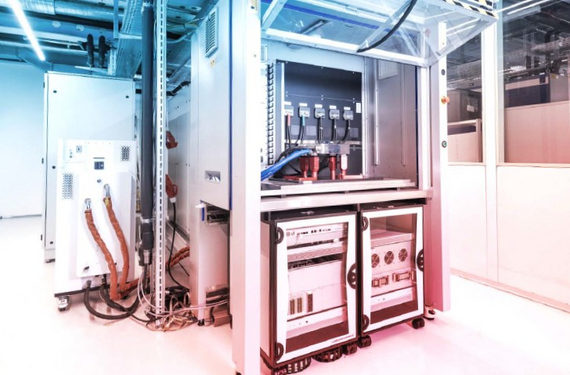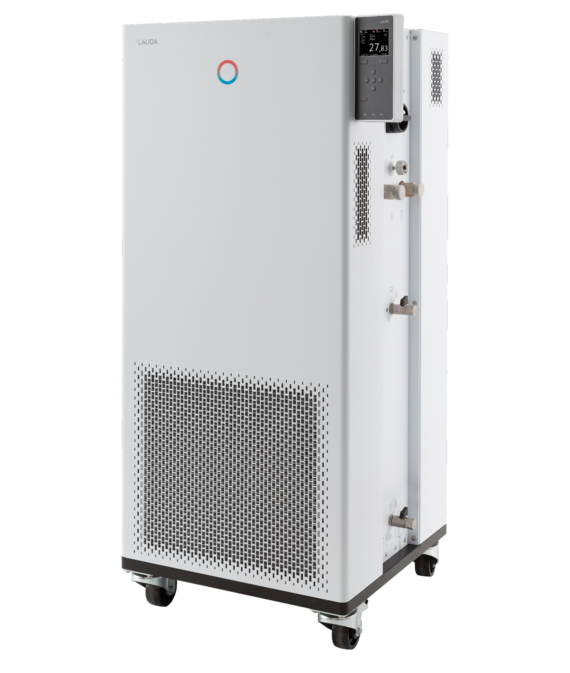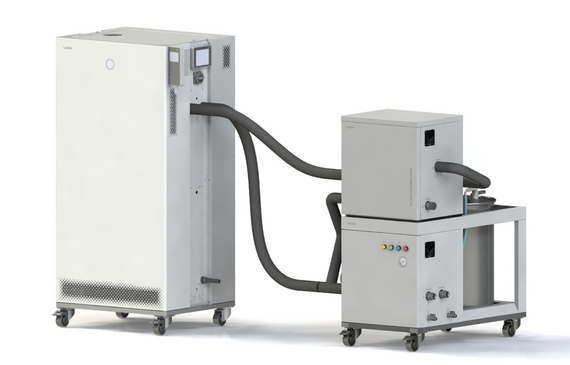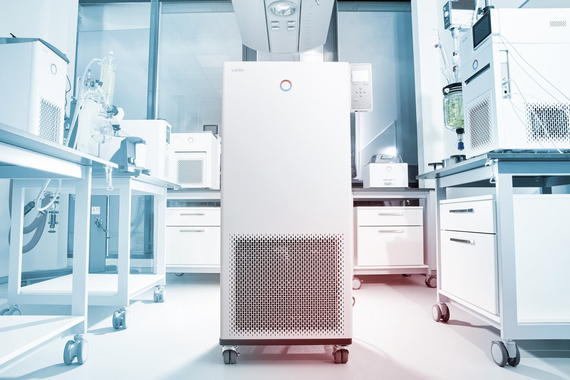Application Note
Application Note
Process thermostats as key components for testing inverters
Increasing requirements in electromobility, such as higher expectations for range, faster charging capability, improved thermal management, or new safety standards, lead to correspondingly higher demands on vehicle components. A central component of the drive system is the inverter, a high-performance electronic component. The company AVL SET from Wangen (Germany) builds test benches for these and other power electronics and relies on process thermostats from LAUDA as an integral component for conditioning test specimens. Together, AVL SET and LAUDA make extensive electrical and thermal tests possible under realistic conditions, thus contributing to subsequent reliability and functionality.

Presentation of AVL SET and LAUDA
Headquartered in Wangen (Germany), AVL SET is an established manufacturer of test systems for power electronics in electromobility. For testing and developing inverters, they have specially developed the AVL Inverter TS, which can be used to test all inverter functions safely and efficiently.
LAUDA is a partner for temperature control and supplies the powerful LAUDA Integral process thermostats, which enable many test scenarios through their thermal management.
Function and thermal management of inverters
Inverters have two tasks in an electric vehicle. On the one hand, they convert the direct current (DC) stored in the battery into alternating current (AC) for the electric motor. On the other hand, they are also responsible for the opposite process, the return of energy during recuperation. The motor acts as a generator, converting the kinetic energy released during braking, downhill driving, or coasting into electrical energy. The alternating current flowing here must be converted back into direct current for the battery. During operation, inverters generate a considerable amount of heat, especially under high load. This harms their efficiency and service life. To keep the inverter as efficient as possible and prevent overheating, thermal management ensures an optimized waste heat flow through the cooling circuit.
Stress tests of inverters
Inverters and other critical components undergo intensive and extensive testing during development and validation to ensure reliable and efficient operation in the future. Realistic conditions such as full load (e.g., acceleration), extreme ambient temperatures (winter/summer or very hot or very cold climate zones), and varying refrigerant flow rates are simulated, exposing the inverters to a wide variety of scenarios. This requires climatic chambers to simulate external climatic conditions, as well as process thermostats (see Figure 1), which simulate the thermal management (i.e., the cooling circuit) of the vehicle.

The Integral process thermostats are used in test benches such as those of AVL SET worldwide. They enable the following test scenarios, among others.
Thermal load and cycle tests
By alternating between low and high temperatures, thermomechanical stresses are simulated, and the inverter's robustness is tested. Process thermostats enable the coolant temperature to be set and controlled with high accuracy (±0.1 °C) and simulate extreme temperature cycles between -40 and 140 °C.
Efficiency tests
Efficiency tests are used to examine the influence that coolant temperature and flow rate have on the inverter's efficiency. Process thermostats ensure stable operating conditions by precisely regulating the coolant temperature and minimizing thermal fluctuations. This is crucial for testing the efficiency and robustness of the inverter under different load conditions.
Limit tests
To check full functionality, the inverter is also tested in extreme situations such as a cold start. In this case, the high power demand of the electric motors during start-up generates a significant amount of waste heat at the inverter. To protect the compact component from overheating, adequate heat dissipation must be ensured immediately. For this purpose, a process thermostat in combination with a flow control unit must provide the volume flow of the pre-tempered cooling medium very quickly. In this way, the temperature of the cooling medium and the variable flow rate are used to quickly control the heat dissipation and bring or maintain the inverter at operating temperature.
Lifetime tests
Temperature cycling profiles and controlled volume flow regulation are used to realistically test the service life of the inverter components and their electronic functionality. During thermal regulation, the process thermostats must be able to compensate for both the waste heat from the inverter as well as the influences of the environmental simulation in the climate chamber. For realistic results, the same cooling liquid must be used during testing that is also used in the later active system. LAUDA Integral process thermostats can be operated with the real cooling liquids and meet the requirements for a temperature range of -40 to 140 °C and control accuracy (±0.1 °C). Both a flow control unit and a filling and draining unit are available as system extensions (see Figure 2).
Conclusion
Process thermostats, such as the LAUDA Integral, complement test benches (like the AVL Inverter TS) and test centers, enabling manufacturers to validate the thermal management of inverters and analyze their performance under a wide range of operating conditions.
The reproducibility and reliability of the data from analysis and validation depend crucially on the process thermostat in conjunction with a flow control system.
Additional system extensions, such as a filling and draining unit, also make the Integral ideally suited for series tests, as they standardize the change of test specimens, increase the efficiency of the test stand, and ensure reproducible results.

Learn how our solutions can make your processes more efficient

Maximum connectivity, performance and dynamics; an integrated bypass for greater flexibility and easy operation make the Integral line the ideal process thermostats for numerous scenarios.
Whether in the aerospace or automotive industries, in the chemical or pharmaceutical industry or in biotechnology, the three Integral variants (T, XT and P) are reliable, trusty companions.
In many working areas of the Integral models, such as temperature control of pressure-sensitive glass reactors, the pump and delivery pressure of the process thermostats is of decisive importance. In this respect, we were able to significantly advance the new Integral process thermostats. With an improved pump performance, the units achieve a remarkable increase in volume flow up to 120 L/min and maximum delivery pressures up to 6 bar.
Find the right device for your application
There are already three products on your comparison list.
To compare other products, please delete one of the products on your comparison list.